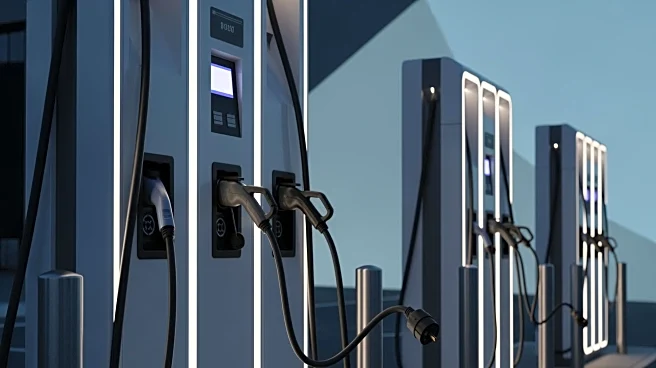What's Happening?
Rivian Automotive plans to lay off more than 600 employees, approximately 4.5% of its workforce, as it faces growing market challenges. The layoffs will primarily affect marketing, vehicle operations,
and sales/delivery teams. Rivian's decision comes amid changing regulations under the Trump administration, including the elimination of a $7,500 federal incentive for purchasing electric vehicles. Despite a 32% increase in vehicle sales during the third quarter, Rivian has narrowed its 2025 delivery forecast and anticipates a larger adjusted core loss this year.
Why It's Important?
Rivian's layoffs highlight the difficulties faced by electric vehicle manufacturers in a rapidly changing regulatory environment. The removal of federal incentives could slow EV adoption, impacting sales and profitability for companies like Rivian. As the industry navigates these challenges, automakers may need to adjust strategies to remain competitive. Rivian's decision to restructure its workforce reflects broader trends in the EV market, where companies must balance growth with financial sustainability.
What's Next?
Rivian's layoffs may prompt other EV manufacturers to reassess their operations and workforce strategies. As the company prepares to launch new models next year, it will need to focus on efficient scaling and profitability. The evolving regulatory landscape could lead to further industry shifts, influencing how automakers approach production and sales. Rivian's actions may also impact investor confidence and market perceptions of the company's long-term viability.
Beyond the Headlines
The layoffs at Rivian underscore the broader economic and political factors affecting the EV industry. As companies adapt to changing regulations, they must also consider the social implications of workforce reductions and their impact on employee morale and community relations.











